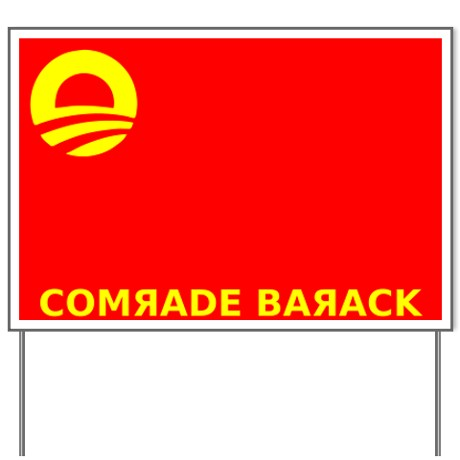Comrade Barack
In December 2013 the world shook its collective heads as Russian
President Vladimir Putin dissolved the State News Agency and replaced it with an outlet that will
provide even friendlier coverage. The new
agency is reminiscent of Pravda, the
official newspaper of Communist Russia.
Just this week Putin has replaced the longstanding head of Radio Russia with somebody who will not air dissenting
voices. Western media and devotees of freedom
tsk-tsk over the crackdown, but largely shrug it off as it is expected of the
Russian leader. President Barack Obama’s
administration took similar steps to control the U.S. media, provoking dissent
at home.
In May 2013 the Federal Communications Commission (made up
of 5 members, all chosen by the President and approved by the Senate, with only
3 members being of one party) issued a 78-page study by Social Solutions International that designed research to identify the critical
information needs (CIN) of the American population. The FCC decided it needed to find out what
information Americans should get and how to get it to them. A series of questions were proposed. The FCC – which licenses and gives permission
for news and media companies to operate – would survey the same news and media organizations (“voluntarily”) to find out:
- What is the news philosophy of the station?
- How do you define critical information that the community needs?
- Who decides which stories are covered?
- Have you ever suggested coverage of what you consider a story with critical information for your customers (viewers, listeners, readers) that was rejected by management?
One imagines that with this information the FCC would either
use its regulatory authority to change answers it didn’t like or would direct
organizations to cover other news in another way. It’s unclear, but chilling in its
possibilities.
The study, like so many other things out of Washington, went
largely unnoticed. Only last week did
one of the FCC Commissioners draw attention to the matter by warning
the public in a Wall Street Journal
editorial. Republicans then rallied, and
a week later the FCC pulled the study and cancelled the survey. (For now.)
It’s refreshing that in America the idea of the Government
coming into a journalistic enterprise and probe into its processes caused a lot
of push-back. That the study was approved and that the process went so far as to getting to the point of implementation is really unnerving. It took 8 months from when
the report came out, and, frankly, until the first station received the survey
it’s doubtful this would have come to light without the courage of the FCC
Commissioner.
Glenn Greenwald, the former Guardian reporter who has reported extensively on NSA leaks by
Edward Snowden will receive the Polk Award for excellence in journalism. He said: “I absolutely refuse to be exiled from
my own country for the crime of doing journalism, and I’m gonna force the issue
just on principle, and I think coming back for a ceremony like the Polk Award
or other forms of journalistic awards would be a really good symbolic test to
put the government in the position of having to arrest journalists who are
coming back to the U.S. to receive awards for the journalism they’ve done.”
There is some comfort in seeing the FCC’s overreach
quashed. Less comfortable is knowing
that they tried. I'm certain they'll try again.




Comments
Post a Comment